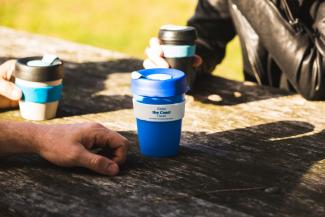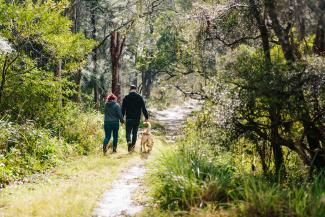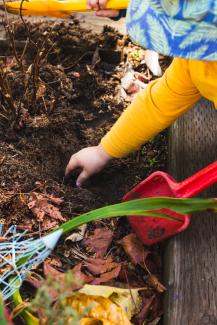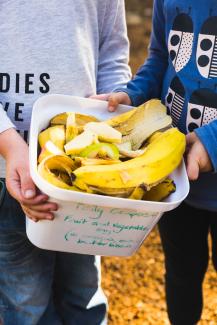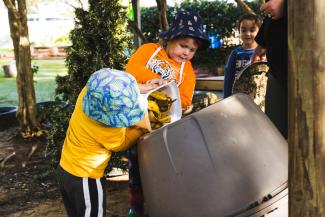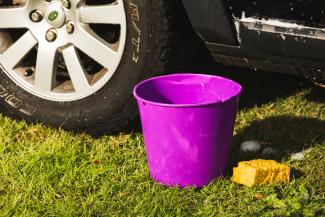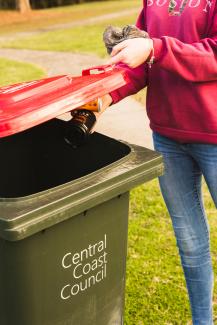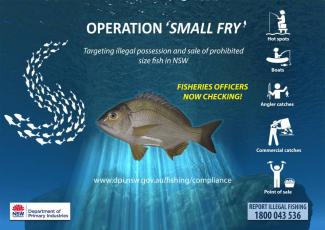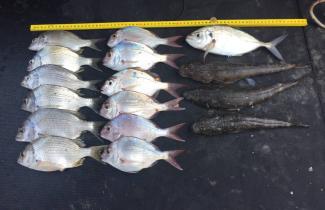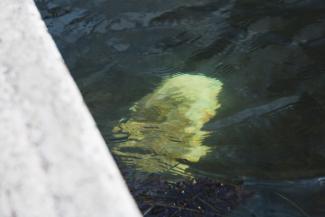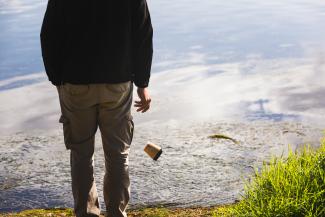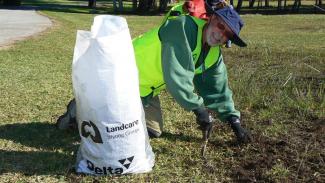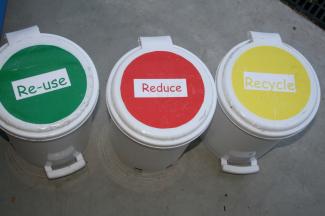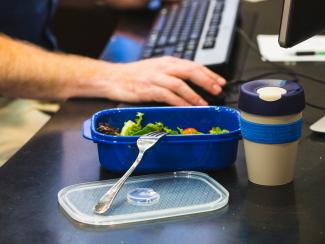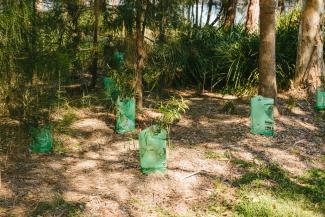Scientists say that most people want to live sustainably but have a hard time taking the necessary steps to do so. Our eco-footprint starts right where we live: in our home, garden or school and at our workplace. The health of our waterways suffers whenever we waste water in our bathroom or kitchen, use a toxic fertiliser on our garden soil and don’t practice recycling.
The good news is that we can all reduce our footprint and make sustainable choices. First of all, we need to remember that every little action counts. Second, we need to be mindful that our land activities have an impact on our lakes. Third, we should feel encouraged that humans are social animals and like to follow a good lead. So, by acting responsibly, we positively influence our friends and neighbours to also start making a difference.
At Home
Green-thumb Activities
Try planting only native plants around your home, as they require little to no fertiliser and less watering. It’s also crucial to use a tarp to cover stockpiles of sand, mulch or soil and to keep them away from drains so that they don’t end up washing into stormwater. If you need a helping hand or a gardening buddy, get involved in Landcare, a grassroots movement for managing environmental issues in local communities. The Central Coast region has many groups that have a diversity of eco-projects for everyone.
At Work
Reduce and Recycle
Even if you think that reducing and recycling are abstract concepts, there are many simple ways you can start caring for our lakes, even from the safe distance of your workplace. What are they? Recycling and reducing plastics are proven to lead to healthier lakes, because the amount of waste landing in the lakes is simply minimised. Use a recycling bin whenever possible. Go plastic-free at work by bringing a reusable coffee cup and food containers. Single-use plastic has a devastating effect on fish and birds, and it also takes more than 1000 years to break down.
Green Education
All children have an ingrained love for the natural world. Teachers and carers should help their students get involved in all sorts of outdoor activities, starting with planting native gardens around the school. Gardening is a great hands-on activity in which young people can learn about the benefits of self-sufficiency and sustainability while being able to indulge in watching their plants and herbs grow. If your school has no space for a garden, the teachers can organise a ‘green’ meet-up with your local Landcare group.
Bye-bye, Plastic
Another great way to instil eco-responsibility in our children and teenagers is to show them the benefits of reusing and recycling. As a teacher, you can introduce a plastic-free program in your school. Through creative play and smart use of ‘green points’ system, you can teach the kids about the benefits of the three R’s: reducing, reusing and recycling. Keep your school’s recycling bins well labelled and easily accessible and to get your students excited about living sustainably, take advantage of social media, leaflets, eco-art workshops and school talks.
On the Water
On the Water
Our waterways – lakes, shores and beaches – are free and open for everyone to enjoy. That’s why we should all take precious care of them. When you’re out on the lake or upstream in the catchment, remember to protect the local plants and animals and their habitat by following the messages on the official signage. Each one of us is responsible for setting a good example. Use the following links and contact numbers to report any issues or suspected offences you’ve witnessed in the lakes area.
Roads and maritime: 13 12 36
Fisheries: 1300 550 474

